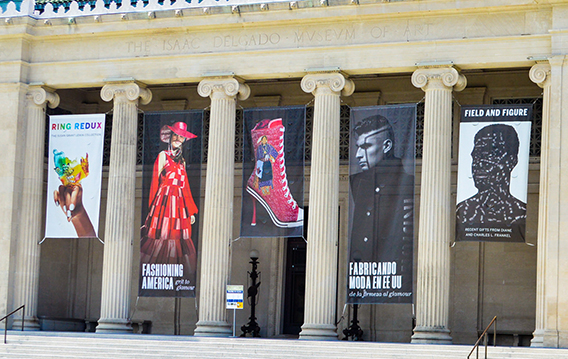Although it’s been five years since the release of Aphex Twin’s last full-length release, “Drukqs” makes up for lost time. “Drukqs,” a two-disc movement released in December 2001, is a little bit of everything. At times, the album can be as gentle and tranquil as a childhood lullaby, but as soon as the last sheep hurdles the white picket fence, the music changes, morphing into head-bobbing anthems and even nightmarish masterpieces. The music is typical of Aphex Twin – always pretentious and a bit macabre, although by no means repetitive of earlier releases. Yes, Aphex Twin is known for his proficiency at creating beautiful ambient soundscapes and layering them over frenzied beats, but “Drukqs” is as much an experiment with new music as it is a re-combination of the Aphex formula. Aphex Twin incorporates a few sultry, film-noirish piano compositions to the mix on Disc 1 of “Drukqs”- evidence that his musicianship keepsevolving with every release. For those of you who don’t know, Aphex Twin is the pseudonym for the eccentric electronic genius, Richard D. James: a name given to him by his mother after his brother, Richard James, died in November of 1968. To understand the chaotic mind behind Aphex Twin and “Drukqs,” it’s important to clarify what type of music this is and where it comes from. Simply labeling this release as jungle, drum & bass, ambient or techno would sell this record short: those terms are too broad and sometimes terribly misunderstood. Electronica can be divided between what you hear in a danceclub and what dances playfully on your brain while you find yourself saying, “Whoa, like, this is cool. Who is this?” Aphex Twin’s records are usually the latter, although many people find the music a bit too psychotic for their MTV-trained attention spans. Despite his reputation for being one of electronic music’s most premier artists, Aphex has created distance between himself and his fans with pretentious and lackluster performances. In a show at Chicago’s Metro in 1998, Aphex Twin pre-sequenced the entirety of his performance on his laptop, so that he could lounge on a giant leather sofa in the middle of the stage and play solitaire. What a guy! If that isn’t weird enough, Aphex Twin confessed in a recent interview that he drives around England in an armored bank car, despite the fact he has no driver’s license. “I’ve seen loads of police, but they just laugh,” he was quoted as saying. “They never pull you over if you got your insurance.” The most common criticism of electronic music is that it has “no soul”; however “Drukqs” speaks for the defense. Truly, this is an emotional album: joyous, weepy, angry, and at times, a bit frightening. Some tracks are catchy, but overall the album is exercise for the ears and mind. Expect the unexpected. If you’ve heard Aphex Twin’s music before, and liked it, this album is definitely worth the buy. Although the $17-$18 price tag is a bit steep, understand that this is a two-disc set: a total of about two hours’ worth of new music. Songs such as “Vord Hosbn,” “Bbydhyonchord,” and “Orban eq trx4” (yes, those are the actual song names) will remind you of classic Aphex anthems from the “I Care Because You Do” and “Richard D. James” albums. However, if you haven’t previously been introduced to Aphex Twin, it’s important to keep in mind that “Drukqs” is not “club-mix” dance music. Instead, it exists as the latest installment in what should be a long and eclectic career of the electronic prodigy called Aphex Twin.













